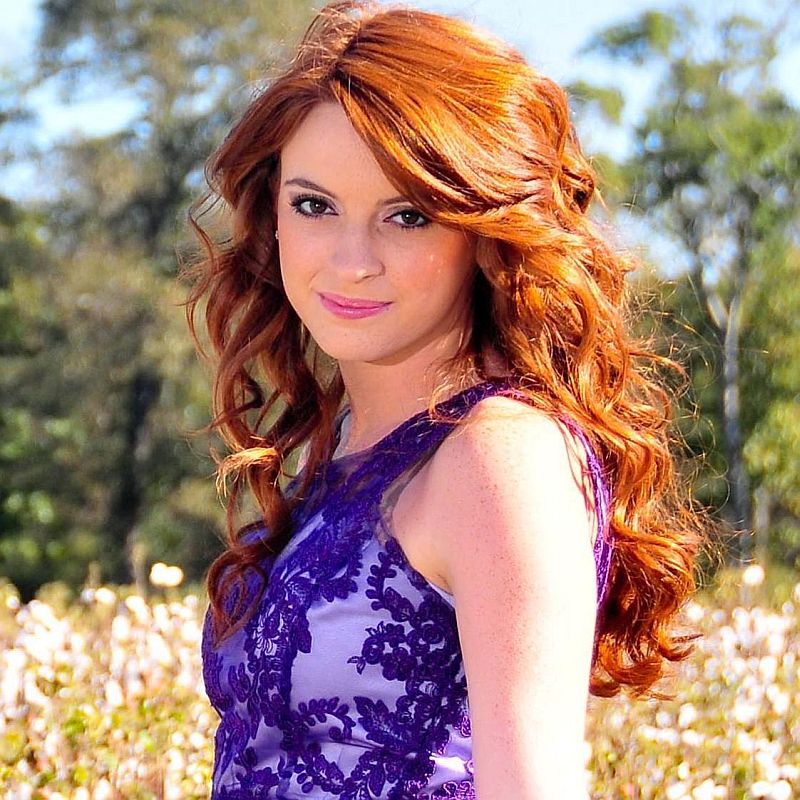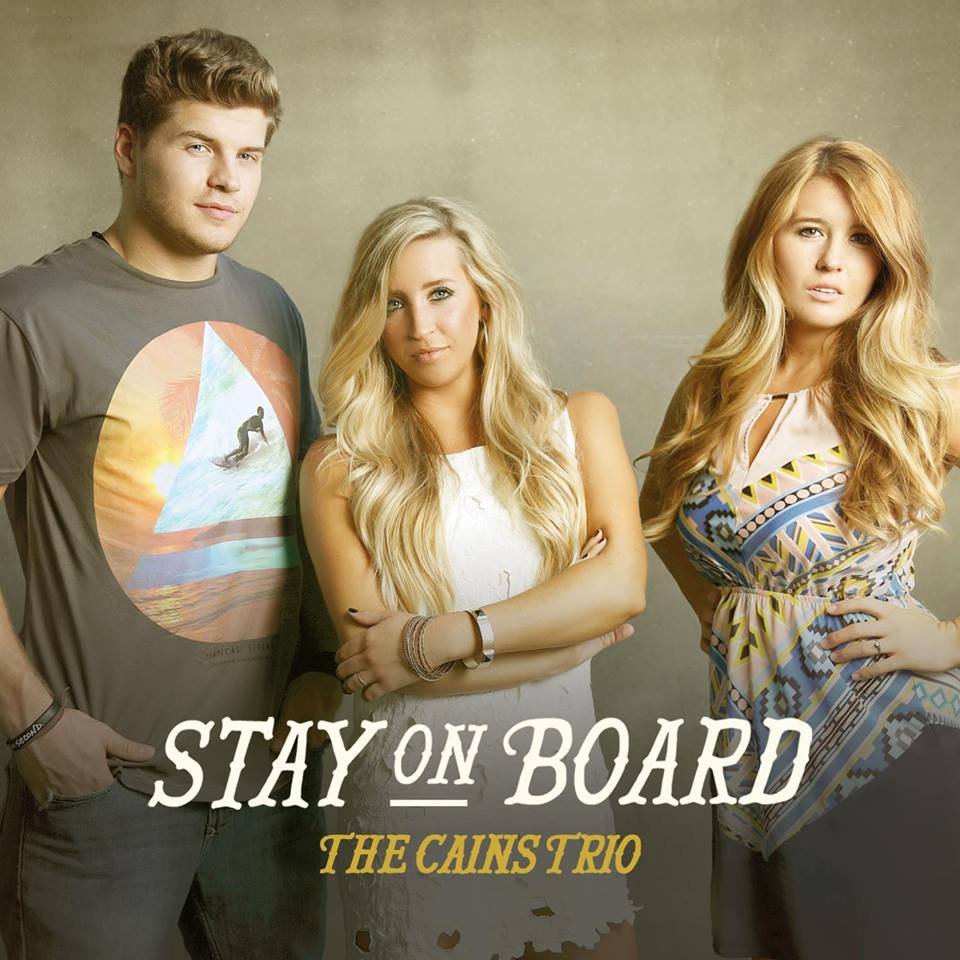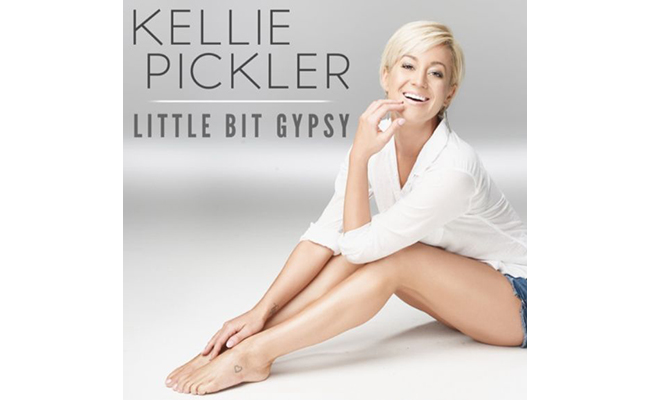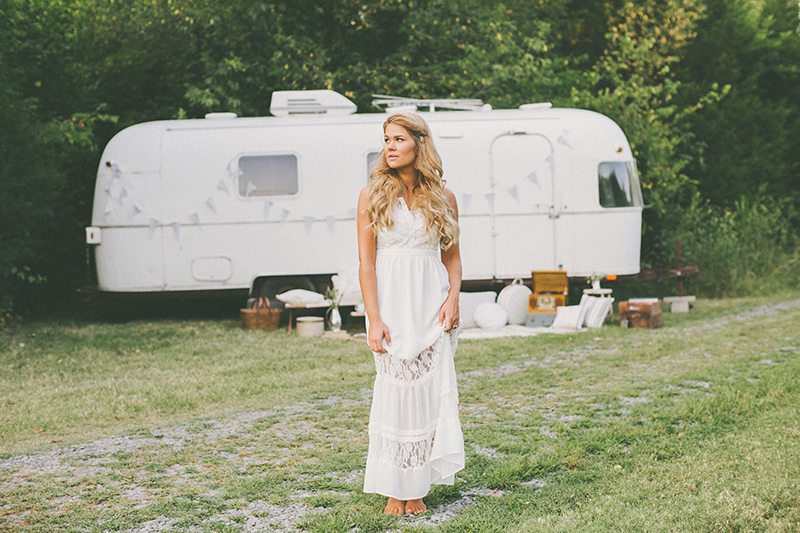Songwriters Circle: Elaine Roy and Lee Roy (The Roys)
13 years ago Liv Carter Comments Off on Songwriters Circle: Elaine Roy and Lee Roy (The Roys)

For the next installment in our series on songwriting, I sat down with brother and sister bluegrass duo The Roys during CMA Music Fest 2011. Using new CD, Lonesome Whistle, as a starting point, Elaine and Lee grabbed the opportunity to chat about the one thing it all starts with – writing songs.
UCN: Songwriting. Why?
Lee Roy: For me, it’s just what I’ve always wanted to do. I don’t remember not wanting to play music. We’d get home from school and it was grab an instrument. Mom and Dad, being from Canada and moving us there very young, and being around the family music element, I just don’t remember wanting to do anything but this. I think that’s when you know you’re doing what God called you to do.
Elaine Roy: I was five years old when I started singing and probably 13 or 14 when I started writing song. The first song I remember writing was for my mom. It was called ‘Mommy’s Little Girl’ and, looking back on it, it was a letter to my mom. I was dreaming of moving to Nashville and moving away and it was my letter to her saying “I’m always going to be your little girl”. I look at it now and think ‘wow, that’s pretty true to life’ because I did move away and left her behind. Writing has just always been part of our lives and, like Lee, said, a calling in our lives.
UCN: That song you just mentioned, that could be a great idea to revisit. You could take that song and say ‘look at what I wrote all those years ago, and look at what I’ve done in my life’.
ER: Yeah, I never thought of that until just now, to revisit that song. That’s definitely something I need to do because it’s so true to my life now, you know, now that I’m sitting here thinking about it. I had written it for a Mother’s Day gift so, yes, I need to revisit that for sure!
UCN: Lee, on first songs, is it true that the first song you ever wrote was a drinking song?
LR: (laughs) It was! I don’t know how old I was; I was really young. It was something about the bar stool or something. Our cousin probably still has the recording of that somewhere. I have no clue why I wrote that. It was just a melody I had and it was pretty honky-tonk-sounding and that’s probably why. Growing up, we did get influenced a lot by George Jones, Waylon Jennings and Merle Haggard so it was kind of copying what we were hearing.
UCN: That must have been kind of cute hearing this 10-year-old go on about a bar stool.
ER: (laughs) Mom was going ‘Um, we have a problem here!’
UCN: You said that song was written off of the melody. What is the process by which you mostly write songs?
ER: It varies. Sometimes you’re just playing guitar and all of a sudden there’s this little melody and then words come. And sometimes it’s vice versa and you hear something and a light goes on. You write it down and then you try to feel a melody around it. (to Lee) And I’m sure for you it’s the same thing.
LR: Yes, you never know where it’s going to come from. I’ve had songs where I’ve written a verse or chorus with no melody and put music to it or vice versa.
UCN: And what feels easier to you? Is it easier to fit a melody onto existing lyrics?
LR: It depends on the song for me. It depends on what I’m feeling and what I hear in my head. I’ve had songs where I’ve written it, and written it from scratch with a guitar sat there and wrote a song and then revisited it and kind of rewrote the whole song. It depends on what I feel. Because you can rewrite songs to death and lose the song you’ve tried to write. But I get to the point where I think ‘you know what, it’s not bad, it’s not great, it’s right where I thought it was going to be’ and then I put it to bed. We just try to be real. We don’t try to overthink what we’re trying to say. A lot of times, what you’re trying to say is exactly what you need to say and not think about ‘ok, how can we cleverly say this?’ There are some songs where you think ‘wow, let me get a dictionary because I’m not really sure what they’re saying here’. We just try to be pretty straightforward with it.
ER: For me, I’ve done this my whole life, never really thought about it, I just kind of did it for myself. Now, living in Nashville, writing for albums and being with co-writers, that’s a whole different ball game for me. I was never a structured writer as far as rhyming and how many syllables. I just wrote what was in my heart and hopefully someone got something from it. I try not to analyze it too much but just kind of let it happen. Lee will say I’m one of the worst writers he’s written with because I don’t do it the correct way or whatever. (laughs)
LR: (laughs) No, she’s been influenced heavily by Dolly Parton. She writes that Dolly style where it’s just true to word. Dolly has amazing songs that don’t rhyme. She’ll have 12 syllables here, 8 there, 9 there. But you listen to it and they really grab your heartstrings. Elaine just writes what she feels and sometimes it doesn’t rhyme and it’s fine. Because it’s telling the truth. That’s key for me ‘did we tell the story?’ Steve Dean, one of our co-writers said that once ‘if we’re wanting to talk about the blue sky, did we tell people about it? And if we did then we did our job.’ We’re just writing music, we’re not curing the world’s problems.
UCN: That’s an interesting point about not counting syllables or looking at rhyming schemes. Dolly does has uneven sentences but because she has those, she gets to decide where she puts stresses. There will be a shorter sentence and so that’s where your attention goes. So she plays with that.
ER: That’s right. And it’s a great tool.
UCN: More on rhymes, I often dislike perfect rhymes. And I was looking at the chorus of ‘Lonesome Whistle’ and you got pines/time, pain/train, cries. So you got that perfect rhyme of pain/train but it fits because it helps create rhythm. Did that happen organically as well or is that deliberate?
LR: That was organic. We do try to add stress a little bit. For me, a lot of times when I’m writing and I wrote a line and going to the next line, I’ll wonder ‘do I want to hear a rhyme, a perfect rhyme or not?’ Sometimes I’ll go ‘right here we really need to find a rhyme because it’s going to sound better with the song’. Other times it can not rhyme at all, but if it works for the song, it works. With ‘Lonesome Whistle’ I think when writing it, it was just falling into place to have that type of a rhyme scheme and it worked. It felt right to our ears.
ER: And it fit the story.
LR: Yes, it did. I’ve heard songs where the rhyme doesn’t really fit the song. From the first note, we want it to be a story and we want it to work.
UCN: Now that I’m looking at those words again, basically time/train/cries – that’s your entire song in three words.
LR: Yes, it is! If you think of the storyline of how they met and the train took him away to the war, she would sit there waiting, and then the last verse where he came home draped in the flag… It is, it’s the whole story of this person’s romance.
UCN: That is so cool. I just realized it.
ER: I never looked at it that way either.
LR: Sure we did, this is how we wrote it! (laughs)
UCN: Oh sure, this is all intentional. (all laugh) I used to help out in a recording studio and one of the staff producers would always look for “clever” lyrics. But for me, I’m not the performer, so it can be the most fantastic sentence but you’re having to play it and if it doesn’t feel natural to you, it’s not going to come across to the audience. They’ll feel you’re not comfortable. Do you agree?
ER: Absolutely. That’s why I think when artists get to do what is truly in their hearts, that’s when they shine the most. They’re singing what they know and what they feel and what they love. On Lonesome Whistle that’s what happened to Lee and me. We didn’t go in the studio thinking ‘we have to cut it this way or that way’. We just took a bunch of songs that we loved, that had stories we thought people could relate to, and we just went in and let the musicians bring the paper to life. They helped our storytelling. So I think when you do that, it comes across as real, which it is. You’re not trying to be someone you’re not.
LR: For us to go into the studio and say, for example, let’s make this sound like a Steel Magnolia record… There’s already a Steel Magnolia. I really like Keith Urban but if I was a solo artist I wouldn’t go in saying ‘let’s try to sound like Keith Urban’. The public wants new and fresh and different. I know I do. If I’ve got three albums all sounding the same, I don’t want to buy that record. But if I have three artists that all have totally separate sounds, I might pick up all three. I don’t want to listen to the same thing over and over. I don’t want to put on a record that could be slid into the same sleeve as another one. For us, with this project, it was just an eclectic group of songs. The opening track, ‘Coal Mining Man’ is pretty much straightforward progressive bluegrass. But the very next song you could have heard Porter Wagoner sing back in the day, or Ricky Skaggs. And the next one you could have heard Bill Monroe do. We wanted a variety of songs and each song got approached differently; the musicianship, even some of the micing. They would change the microphones to get a different feel on the song. Cody would pick up a specific guitar for a specific song because it had a slightly different tone. A lot of people really have gravitated towards this project and they’ve said ‘you kept your love of tradition but you’ve brought it to 2011.’ That’s really what we tried to do. We didn’t want to be too strict about anything, you know what I mean?
UCN: Yes, you didn’t want to write to a format. If you do that, you might lose out on some interesting sounds.
LR: Absolutely. I’m not a dobro player so I am not going to go to Randy Kohrs and tell him how to play.
ER: We just let them play their instruments.
LR: If we felt it didn’t fit, we’d go ‘you know, maybe we should do a fiddle intro’, and we’d re-cut it. But we just let them do their thing and this album is what we came up with.
UCN: Elaine, you were saying before ‘I’m not a great writer’ but one of my personal favorites is ‘Right Back at You’.
ER: Really? Well, thank you so much.
UCN: It’s just one of those songs where all the elements just fit.
ER: Wow, that’s a very nice compliment. Thank you.
UCN: You’re very welcome. Can you talk about that song? You wrote that all by yourself, right?
ER: Yes, I wrote that on my own.
UCN: How is that for you as opposed to having co-writers?
ER: I had always written alone. We weren’t doing this for a while for a living so I was working a job and so co-writing was never really a big thing. A few times when we were young we wrote together but I always just did it for me. It was just one of those creative things you do, like a gardener or a painter. It was just a creative outlet.
UCN:…saving money on therapy.
ER: Exactly! (laughs) That song, it was a Saturday morning, I remember it so vividly. I felt like singing so I took out my guitar and started strumming and I don’t know where this came from. I always say it’s from God. Literally in 45 minutes it was written. It was just one of those things. I played it for Lee and he said ‘wow, that’s a great song’ so we started doing it in our shows and people liked it. They’d come up and say ‘it touched me’ or ‘it’s going to give me back my groove’. So when this project came along, it was going to be more acoustic. I always felt this song should be more acoustic so I play it for Andy [Leftwich, the producer] and it was ‘that’s going on the album!’
LR: It’s the song on the album that, I call it ‘old school’, where she did two verses-chorus-verse-chorus. You used to hear that a lot. When the second verse kicks off, and all the instruments come in, to this day, I will always look at our fiddle player and we both have goosebumps. The way the instruments come in, the way she sings, it’s the one song that does that. We’ve played it a million times, we’ve recorded it three times at this point, and this is the recording where we finally got it. The great thing is, she sang it totally different this time on the record and I think it took a couple of years of playing it live for her to really figure out how she wanted to sing it and inflect her emotions in the song. I think it’s phenomenal.
UCN: So do I. I have that down as one of the stand-outs.
ER: You just made my day!
UCN: On ideas, Elaine, you mentioned that the idea for ‘Trailblazer’ came off the back of a car. I love that.
LR: That’s that ‘you never know where an idea will come from’! (laughs)
ER: Lee and I, and Steve Dean were going to write that day. And shortly before Lee calls…
LR: I think it was a day or two before that I called to say my publisher wanted me to cut a few songs on a demo session. But I told Elaine she still needed to go and write.
ER: And I’m like ‘oh man!’, I was nervous. He’s a big time songwriter. Then Steve calls and says his daughter wanted to sit in with us. And I’m like ‘Awesome. A #1 songwriter and his daughter is going to sit in. I better come up with something good!’ So I’m sitting in traffic and in front of me was a trailblazer SUV. And that word, right away I thought of Dolly Parton. And I thought ‘that is so cool, she’s a trailblazer!’ I mean, think of where she’s come from and where she is and still doing today. I see her on the news and still think ‘wow!’. If she had put herself in a box…you know, we tend to put ourselves in a box. We always think ‘this is all we can do’, but if you let God open that box and let Him lead you, there are so many things we can do that we are so capable of that we don’t even know about. So, I brought the idea to the table and he’s either going to fall off his chair laughing or think it’s cool. He asked me what my idea was and I said that I am a dreamer. I don’t put myself in that box. I think things can happen and I want to write it about dreamers like me; trailblazers. I think everyone of us is a trailblazer if we let ourselves be. So they loved it and we wrote the song. It’s been kind of our anthem for all the dreamers out there.
UCN: Are there any other examples you have of the most random things inspiring songs?
LR: I’ll tell you, there’s a song I wrote alone called ‘I Wonder What God’s Thinking’. I was watching the news with my wife, and of course the news is always depressing, but there was this story about a 15-year-old girl who was homeless. And I just sat there and looked at my wife and said ‘stories like that make you wonder what God’s thinking’. And as soon as I said it… I said ‘I’m going to go Google this, because there’s got to be a zillion songs called ‘I Wonder What God’s Thinking’’ but I think there was only one and it was some big Gospel thing. I kept thinking of who I was going to be writing with that week and who could I write it with. But it kept running through my head and I finally just went and sat at the computer with my guitar and just wrote it. Inspiration does come from everywhere and all too often, the clever hooks can make you go ‘well that’s kind of cheesy and corny’. But if I see a song title and it’s just ‘Gone’, I’ll wonder what that’s about. As opposed to, you know, ‘she left so I went right’. I’m like ‘really?’ That’s too corny for me. That’s why I love things like ‘Trailblazer’. When Elaine said ‘we wrote a song called ‘Trailblazer’‘, I immediately wanted to know what it’s about. I love that.
UCN: So you’re drawn most to the lyrics, or the melody? What lodges into your head first?
ER: Both. I am a big melody person. Words are sometimes harder to come up with. I can tell you the story but I’m not sure how to create it, but the melody might come easier. But again, it depends on the song and the mood. Sometimes you’re not in the mood for words, you’re in the mood for melody.
LR: I’m the same way. There are plenty of songs written by others that the words, the story of the songs, really grabbed me but the melody just drains me. If I can take the words off and still want to listen to it, that’s a great melody. The melody also has to grab me.
ER: Or if I find myself humming it. I’ll think ‘oh, that’s a catchy thing’.
UCN: That reminds me of a song on Craig Campbell’s new CD, ‘Makes You Wanna Sang’. The entire chorus is mmm-mmm. Just humming.
ER: Really?
UCN: Yes, it’s brilliant!
ER: Oh, I’ll have to check that out.
UCN: When you have writing session and there is a disagreement, how do those get resolved?
LR: For us, it’s whatever will make the song the strongest, or makes the most sense, or fits the song best. It’s pretty easy. We have those little things where one of us will throw something out and we’ll be like ‘hmm, I’m not sure about that’ and we’ll just go ‘ok, let’s leave it for now’ because it tends to work itself out. Usually whoever really wanted something, the other will call and say ‘you know, it does make more sense to do this’. We’ve written plenty of songs where one of us will say something for a chorus or verse and then one goes ‘I think that’s so powerful, I think it should be the bridge’. Again, it’s a compromise. And whether it’s my sister writing with me or you writing with me, it’s always a compromise. It can’t be a thing where you go ‘no, it has to be this way’. If everyone involved really wants the best for the song, that ends up working and that ends up bubbling to the top.
UCN: So you need to live with a song for a while sometimes to hear what the other person was talking about?
ER: Oh yes. For me, a song is put to bed when it’s recorded and stuck on an album. We’ve never been the type to re-write and re-write. But there are some things, like ‘My Oh My’ on this project, we did re-write. Elaine had some suggestions and we changed some words and it just made more sense. I just thought ‘we’re trying to say too much here. I think if we take this line and just do it this way, it’s done and we don’t need all these words’. And we have had songs where afterwards we’ve gone (sighs) ‘I wish we would have done this…’ But you just have to put it to bed and move on.
UCN: Is it easy for you to leave songs alone?
ER: It’s fairly easy for me. Like Lee said, you can re-hash and re-hash but once you’ve written it, you feel good about it and the story is there, why go back? If it’s bothering me, sometimes I walk away from them and then a month or two later I’ll go back. Then I can go ‘oh yes, now I’ve got something for this’ or ‘that doesn’t really work’ and it can help you get to that next step.
UCN: The first interview I do with anyone, I end with this: what quote or saying motivates you day to day?
ER: Well, mine is ‘If you think you can, you can. If you think you can’t, you can’t.’
LR: For me, it’s not really a quote I’ve heard, it’s ‘I can’t change what I did yesterday, but I can change what I’ll do tomorrow.’ And for me, it’s one of those things where I think back and go ‘oh that show we were awful’ or ‘I missed my note’ or ‘we ended it wrong’. I can’t change that. But I can go ‘what did I do wrong there that I won’t do tomorrow?’ That’s what I always try to do. I hate to watch myself on TV or on video because I will find faults. But I will go ‘ok, what we just did there really worked’ if people got it and if people laughed. We don’t choreograph anything for our show, I don’t like that, we just want to play music. But if we find something that really grabs the audience, we’ll use it again. We are brother and sister and one thing people like is that we do cut up with each other. Not too long ago we did a show where she said about ‘Trailblazer’ that it’s a song for the dreamers, young or old. And I stood behind her and I went (points to Elaine and whispers) ‘And she’s old’. And people loved it. She didn’t know what I did but everyone laughed. We just love to have fun and I try to learn from what I did yesterday, incorporate it for tomorrow and then tomorrow I’ll do the same for the next day.
UCN: Yes, I get it. I’m comfortable doing interviews now but I used to really obsess over what I felt I had missed. Now it’s more fun being relaxed about it. Especially this series of interviews as I can talk about songwriting all day long!
ER: Well, this was awesome for us!
UCN: Thank you both so much for your time!
LR: Thank you!
Copyright ©2011 Urban Country News. All rights reserved. This material may not be published, broadcast, rewritten, displayed or redistributed for any purpose without permission from Urban Country News.
Liv Carter
She holds several certificates from Berklee College of Music, and a certificate in Positive Psychology from UC Berkeley.
Her main influences are coffee, cats, and Alexander Hamilton.
Latest posts by Liv Carter (see all)
- Well yes, racism, but it’s more complicated - February 13, 2017
- Black River Entertainment had a great reason to party! - October 25, 2016
- Keith Urban returns to the States for US arena leg of his “ripCORD WORLD TOUR 2016” - October 10, 2016




